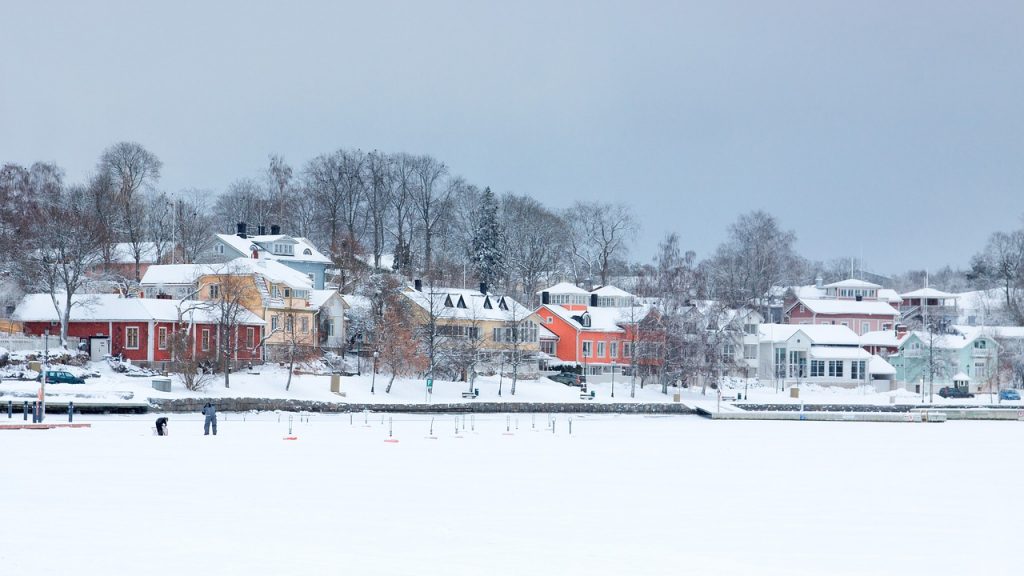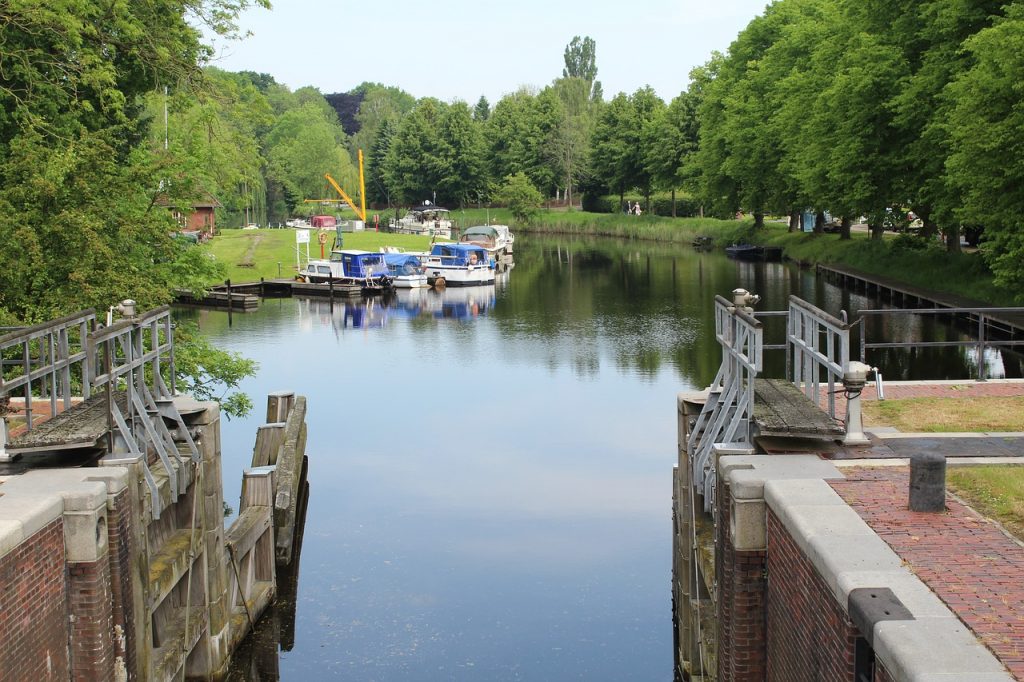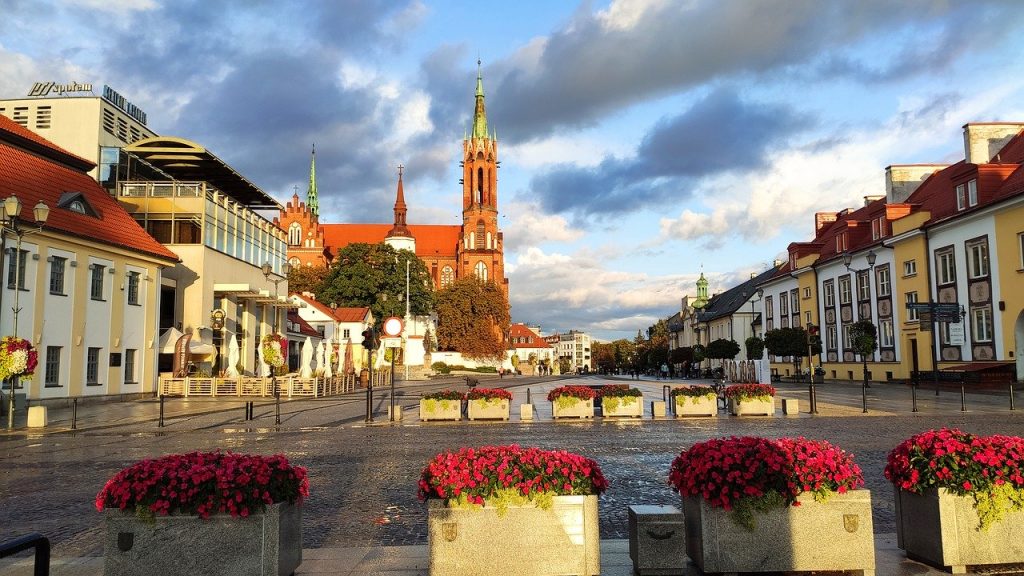The “Wprost” monthly mentions the holiday village of Rowy as “Polish Riviera”. Rowy is situated by the open sea, among pine forests. This creates a unique microclimate and perfect conditions for relaxation and tourism. Rowy gained its popularity quite recently. That is why they are still a cozy place devoid of the disadvantages of big, famous resorts
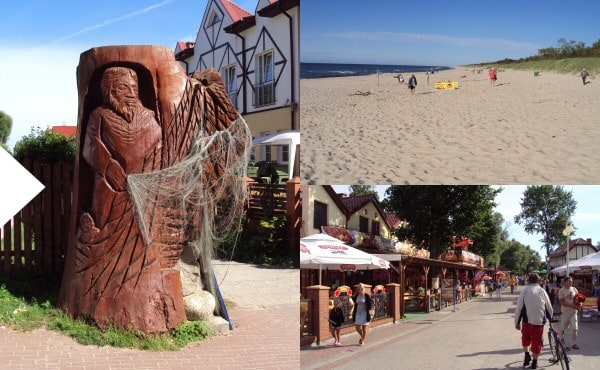
Basic information
The immediate vicinity of the Słowiński National Park makes the location of Rowy more attractive. But the most important thing is that the wide, sandy beach is really close – a few minutes on foot from anywhere in Rowy. Currently, Rowy can boast of several dozen holiday centers, guesthouses, several shelters, campsites and campsites. There are also more and more holiday homes each year. It is estimated that several thousand holidaymakers stay in Rowy during the summer season. The ditches have about 360 permanent residents who mainly deal with fishing. It cannot be denied that tourism is an equally important, perhaps even the most important source of income. Let’s remember that when we are there. Even when getting to know the specific mentality of these people.
Geography
Rowy is a Baltic port located on the Gardno Spit between the sea and Lake Gardno, on the western border of the Słowiński National Park. The village is situated on the left bank of the Łupawa River, which, flowing through Gardno, has an estuary to the sea and at the same time constitutes an entrance to the Rowy port. In ancient times, there was supposed to be the sea port of Gardna Wielka lying on the other side of the lake, but this is not confirmed by historical records. The cliff coasts to the west of Rowy and the moving dunes to the east add charm to this area – the main attraction of the Słowiński National Park.
Interesting facts
Until recently, there was a pre-war US Army torpedo boat in the port. This ship was given to the Russians, and when it grew old, they handed it over to our troops. In the 1970s, the cutter was surrendered and bought for an elegant hotel and restaurant. Unfortunately, the acoustics of the ship were not conducive to this combination, so the owner only made a restaurant in it. The end of the cutter, however, was unexpected and sad. It was destroyed by a fire and legends are already growing around this event.
History
Archaeological finds prove that the village was already inhabited in the prehistoric period. The first records of Rowy come from 1282, known then as Roune. From the beginning of its existence, it was a fishing village inhabited by the Slovinian people, related to the Kashubians.
In the 14th century, the village was probably one of the bases of the Witaliski Brothers, pirates defeated by the Teutonic Knights. But other records prove that in 1350 the Rowy belonged to the Bartowicz family, who set off from there to catch herring. From 1390, a text about Rowy is written by a knight from Lancaster, Henry Derby (later King of England, Henry IV), who visited the settlement on his way to Gdańsk. Henryk Derby’s journey is also mentioned that its purpose was to help monastic knights besieging Vilnius, but for unknown reasons he interrupted his journey here. During this period, Rowy was under the rule of the Teutonic Knights.
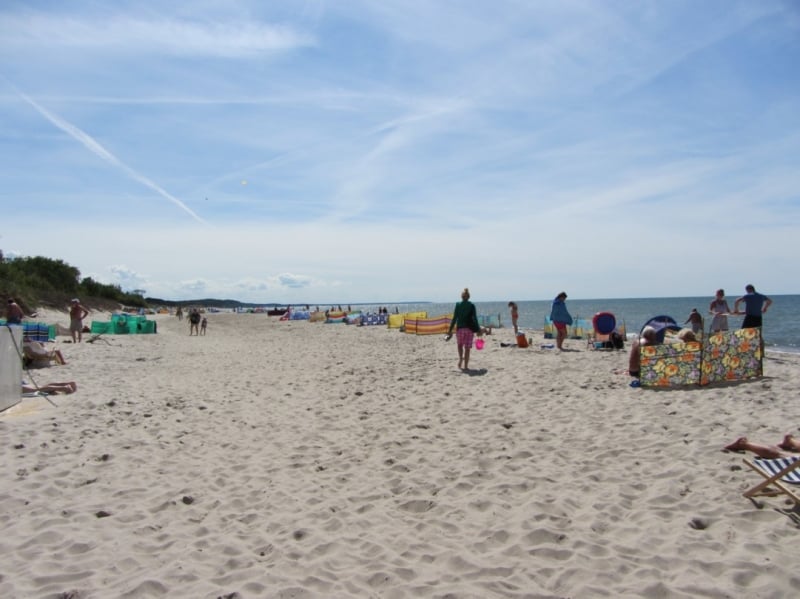
The Rowy Harbor was visited by ships from various countries. This was confirmed by the graves of sailors of many nationalities in the cemetery at the church of that time (existing until the mid-19th century), some from the beginning of the 18th century. This period was also the period when the town flourished. In 1784, twenty-six families lived here. According to historical sources, Rowy was situated in the territory of the Polish state from the times of Mieszko I to the end of the 13th century. In the 14th century, Pomerania was taken over by the Teutonic Order and from that moment the authority over the Rowy passed through various hands. They returned to Poland on March 9, 1945, with the entry of the 19th Army of the 2nd Belorussian Front.
For centuries, many stories about the creation of Rowy have been passed. Legends say that Rowy was founded by refugees from Wolin after the Vikings or Danes attacked the island in the 11th century. For many years, Rowy was said to be a starting point and treasury for robbers living in Rowokół. The legend says that the history of highwaymen began in Rowy.
The old church chronicle records the story of a lifeboat that landed on the banks of Rowy at night. A mysterious man, in a yellow (apparently important) jacket, and a beautiful girl got out of it. Their companions woke the pastor and forced him to marry him. They were Swedes, and rumor has it that the newlywed was King Gustav Adolf himself. It could have been, if it happened, in the sixteenth / seventeenth century, bearing in mind the time of life and reign of the mentioned, and the liking of the Swedes to the Polish land at that time. More precisely in the 20s of the 17th century, taking into account the age of the only daughter of Gustaw Adolf.
The materials come from the website rowy.pl
